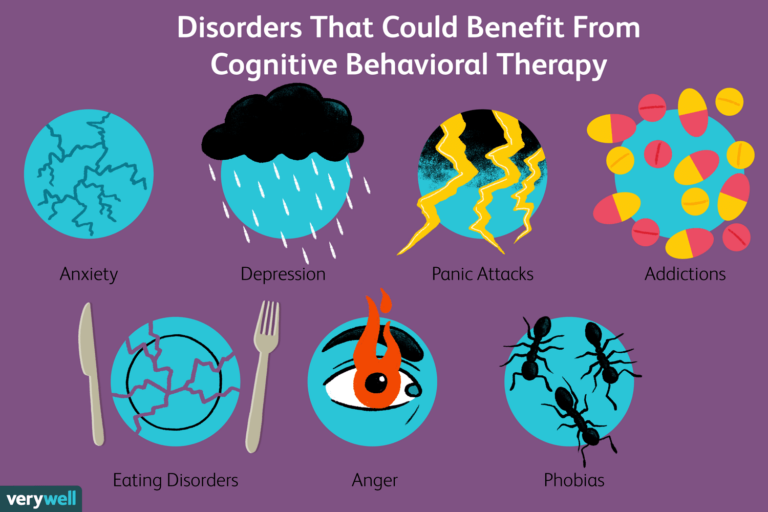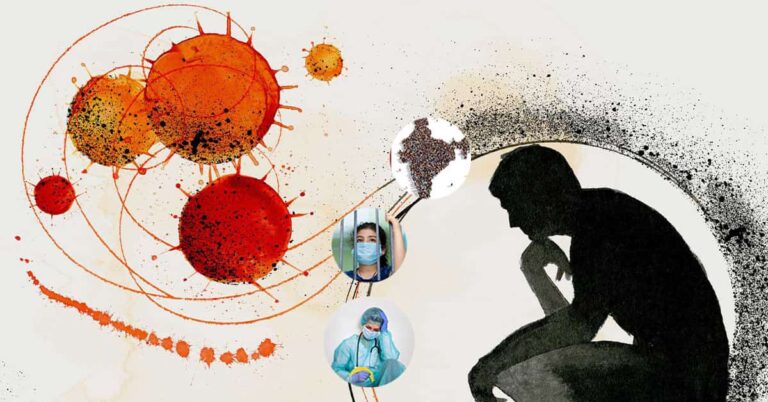
Depression and anxiety are severe and developing issues. Mental health issues, particularly mental disorders, have been a cause of concern for public health officials, healthcare providers, and everyone else in both countries. They can have an impact on people of different ages, genders, and cultures. Depression and anxiety may result in suicide.
Table of Contents
What is Depression?
What is Anxiety?
Depression, often known as major depressive disorder, can be defined by pervasive feelings of sorrow and despair as well as a loss of interest in or pleasure in once-enjoyable activities. It has an impact on a person’s mental and physical well-being. Family history, habits, traumatic experiences, and medical disorders may lead to depression.
These are some of the warning signs and symptoms of depression:
- Persistent unhappiness
- Decreased interest or enjoyment
- Alterations in hunger or weight
- Having trouble falling asleep (insomnia).
- Tiredness
- Difficulty focusing or making decisions
- Suicidal thoughts
Anxiety is a state of anxiety, jitteriness, or unease. Everyone occasionally feels this common emotion. However, for some people, anxiety can cause a persistent issue that interferes with their day-to-day activities. Family history, habits, traumatic experiences, and medical disorders may lead to depression.
These are some of the warning signs and symptoms of anxiety:
- Excessive worry, worrying about improbable or uncontrollable events.
- Having a restless or tight feeling
- Having problems paying attention or focusing on tasks.
- Irritability: The capacity to become quickly angry or upset.
- Pressure in the shoulders, back, and neck.
- Severe headaches frequently.
- Pain in stomach.
- Insomnia or sleeping problem
Here are some statistics about Depression and Anxiety in the United States:
- Women are more prone than men to experience despair and anxiety.
- People aged 18-25 are more likely than others to suffer from despair and anxiety.
- People with lower salaries are more prone to suffer from depression and anxiety than people with higher incomes.
- Black and Hispanic persons are more prone than white people to experience despair and anxiety.
- LGBTQ+ people are more prone than cisgender straight people to experience despair and anxiety.
Depression: 40.2 million adults in the United States (or 15.7%) had at least one major depressive episode in 2020. In 2020, one in every five adults (20.6%) in the United States will have at least one anxiety condition.
Anxiety: Generalized anxiety disorder (GAD) affects 6.8 million people (or 2.9%).
Social anxiety disorder affects 15.7 million adults (about 6.7%).
Panic disorder affects 4.7 million adults (about 2.1%).
Specific phobias affect 19.2 million adults (about 7.8%).
Here are some more statistics about Depression and Anxiety in Canada:
- Women are more likely than men to suffer from depression and anxiety.
- People aged 15 to 24 are more likely than other age groups to suffer from depression and anxiety.
- People with less salaries are more prone to suffer from depression and anxiety than those with higher incomes.
- Indigenous people are more likely to suffer from depression and anxiety than non-Indigenous people.
- Newcomers to Canada are more likely than native-born Canadians to experience despair and anxiety.
Depression: Depression affects 4.7 million Canadians aged 15 and older (about 16.5%). 1.9 million Canadians aged 15 and older (7.3%) have had major depressive disorder (MDD) at some point in their lives.
Anxiety: 7.2 million Canadians aged 15 and up (or 24.3%) have experienced anxiety at some point in their lives. Anxiety disorders affect 4.1 million Canadians aged 15 and up (14.5%).
Psychological Therapy For Major Depression:
Cognitive behaviour therapy (CBT) is the most researched psychological treatment for depression. 33 CBT is an effective treatment that can be easily implemented in medical practice. The principles are educating the patient, teaching fundamental relaxation techniques, and increasing the patient’s abilities to identify, confront, and modify maladaptive thoughts, feelings, perceptions, and behaviours. 34 Systematic reviews and meta-analyses have found evidence of benefit in depressed inpatients and those with chronic physical health conditions.

Psychological Therapy For Major Anxiety:
There are numerous forms of psychological treatment that can be useful for anxiety problems. The following are some of the most common:
- Cognitive-behavioural therapy (CBT): CBT is a sort of therapy that focuses on changing how you think and behave in order to control your anxiety. CBT can help you identify and confront negative ideas, build coping methods, and control your anxiety symptoms.
- Exposure treatment: Exposure therapy is a sort of therapy that entails gradually exposing you to your dreaded object or situation in a safe, regulated atmosphere
- Acceptance and commitment therapy (ACT): ACT is a sort of treatment that focuses on helping you accept your nervousness and live a meaningful life despite it. ACT can assist you with focusing on the present, identifying your values, and taking action toward your goals.
Mindfulness-based stress reduction (MBSR): MBSR is a sort of treatment that teaches you to meditate on the present and integrate your thoughts and feelings without criticism. MBSR can help you minimize stress and anxiety, enhance your sleep, and raise your self-awareness.
COVID-19: The Pandemic's Effect on Mental Health

The incidence of depression and anxiety in Canada and the USA has significantly increased as a result of the COVID-19 epidemic. Anxiety, stress, and uncertainty have all been brought on by the pandemic. Social isolation has also resulted from it, and this can make mental health issues worse. Managing the pandemic’s mental health difficulties necessitates a multifaceted approach that includes improved knowledge,stigmatization of seeking help expanded availability of mental health care (both in-person and virtual), and assistance from family, friends, and communities. Furthermore, when the situation changes, it is critical to track and react to the population’s evolving mental health requirements.
Epidemiological research in Canada and the United States continues to demonstrate that anxiety disorders cannot be ignored as a predictor of suicidal behavior, even though the causes are unknown. Across these epidemiological investigations, practically every lifetime anxiety illness has been established as a predictor of SI in younger and middle-aged adults, sometimes irrespective of comorbid mood conditions and drug dependency. Furthermore, in a population sample of Canadians, those who had a lifetime phobia or panic disorder had a considerably higher risk of attempting suicide. As a result, research on the extent to which specific past-year anxiety disorders are distinctively related to SI in nationwide lifespan populations is lacking.
It’s crucial to seek assistance if you’re experiencing sadness or anxiety. Therapies, medications, and alterations in lifestyle are just a few of the numerous successful therapies that are available. To cope with sadness and anxiety, you can also access internet tools and support groups. You can chat with a friend or member of your family about your worries if you think they could be suffering from depression or anxiety and encourage them to get help. Depression and anxiety are significant mental illnesses, but they can be treated. If you or anyone you know is experiencing difficulties, please seek assistance. There is no stigma associated with requesting help, and it could change your life.
Reference:
1.
Associations between anxiety disorders, suicide ideation, and age in nationally representative samples of Canadian and American adults
https://www.sciencedirect.com/science/article/abs/pii/S0887618514001297
2.
Depression and anxiety
https://www.mja.com.au/journal/2013/199/6/depression-and-anxiety
